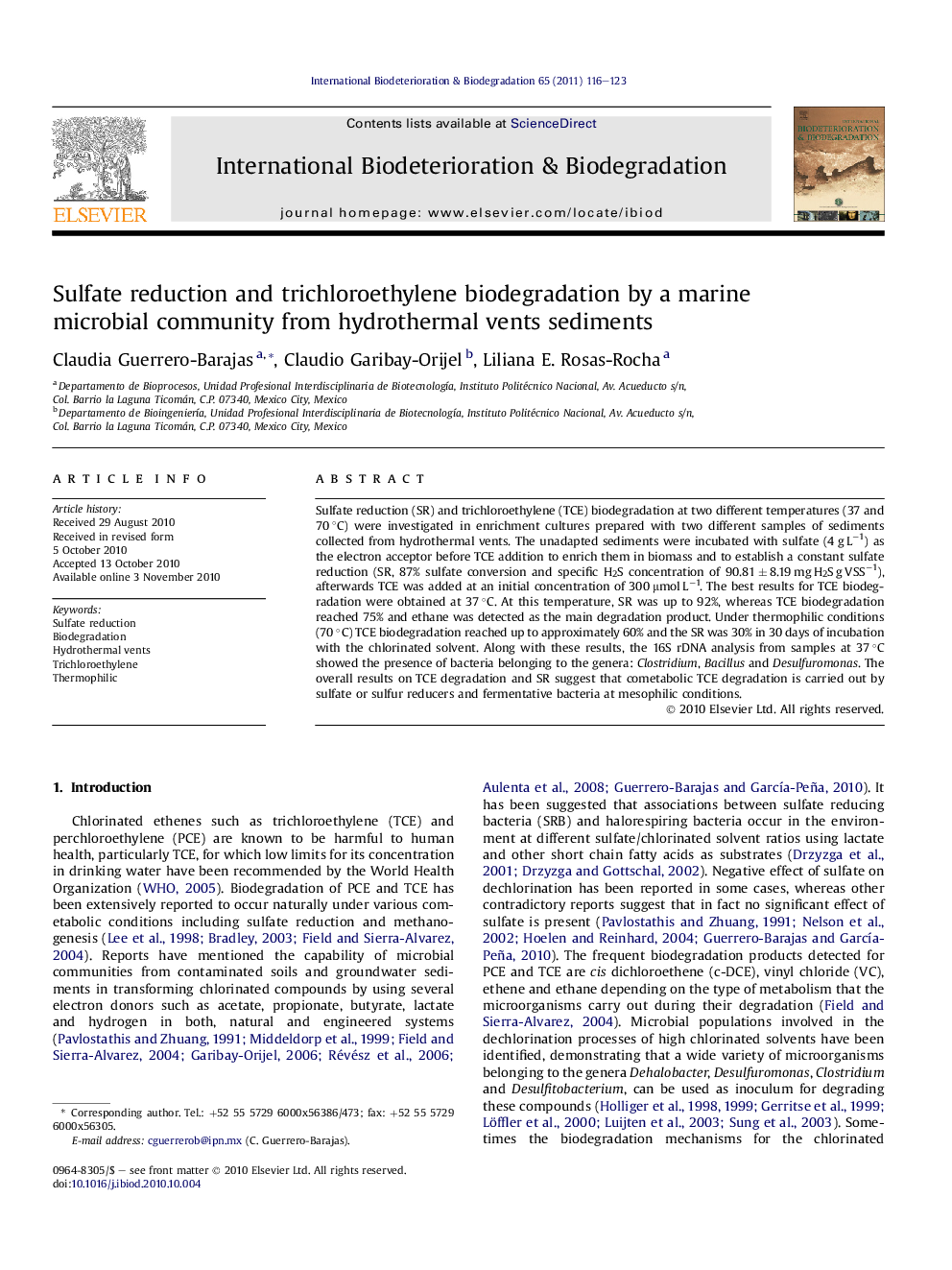| Article ID | Journal | Published Year | Pages | File Type |
|---|---|---|---|---|
| 6289583 | International Biodeterioration & Biodegradation | 2011 | 8 Pages |
Abstract
Sulfate reduction (SR) and trichloroethylene (TCE) biodegradation at two different temperatures (37 and 70 °C) were investigated in enrichment cultures prepared with two different samples of sediments collected from hydrothermal vents. The unadapted sediments were incubated with sulfate (4 g Lâ1) as the electron acceptor before TCE addition to enrich them in biomass and to establish a constant sulfate reduction (SR, 87% sulfate conversion and specific H2S concentration of 90.81 ± 8.19 mg H2S g VSSâ1), afterwards TCE was added at an initial concentration of 300 μmol Lâ1. The best results for TCE biodegradation were obtained at 37 °C. At this temperature, SR was up to 92%, whereas TCE biodegradation reached 75% and ethane was detected as the main degradation product. Under thermophilic conditions (70 °C) TCE biodegradation reached up to approximately 60% and the SR was 30% in 30 days of incubation with the chlorinated solvent. Along with these results, the 16S rDNA analysis from samples at 37 °C showed the presence of bacteria belonging to the genera: Clostridium, Bacillus and Desulfuromonas. The overall results on TCE degradation and SR suggest that cometabolic TCE degradation is carried out by sulfate or sulfur reducers and fermentative bacteria at mesophilic conditions.
Related Topics
Life Sciences
Environmental Science
Environmental Science (General)
Authors
Claudia Guerrero-Barajas, Claudio Garibay-Orijel, Liliana E. Rosas-Rocha,
